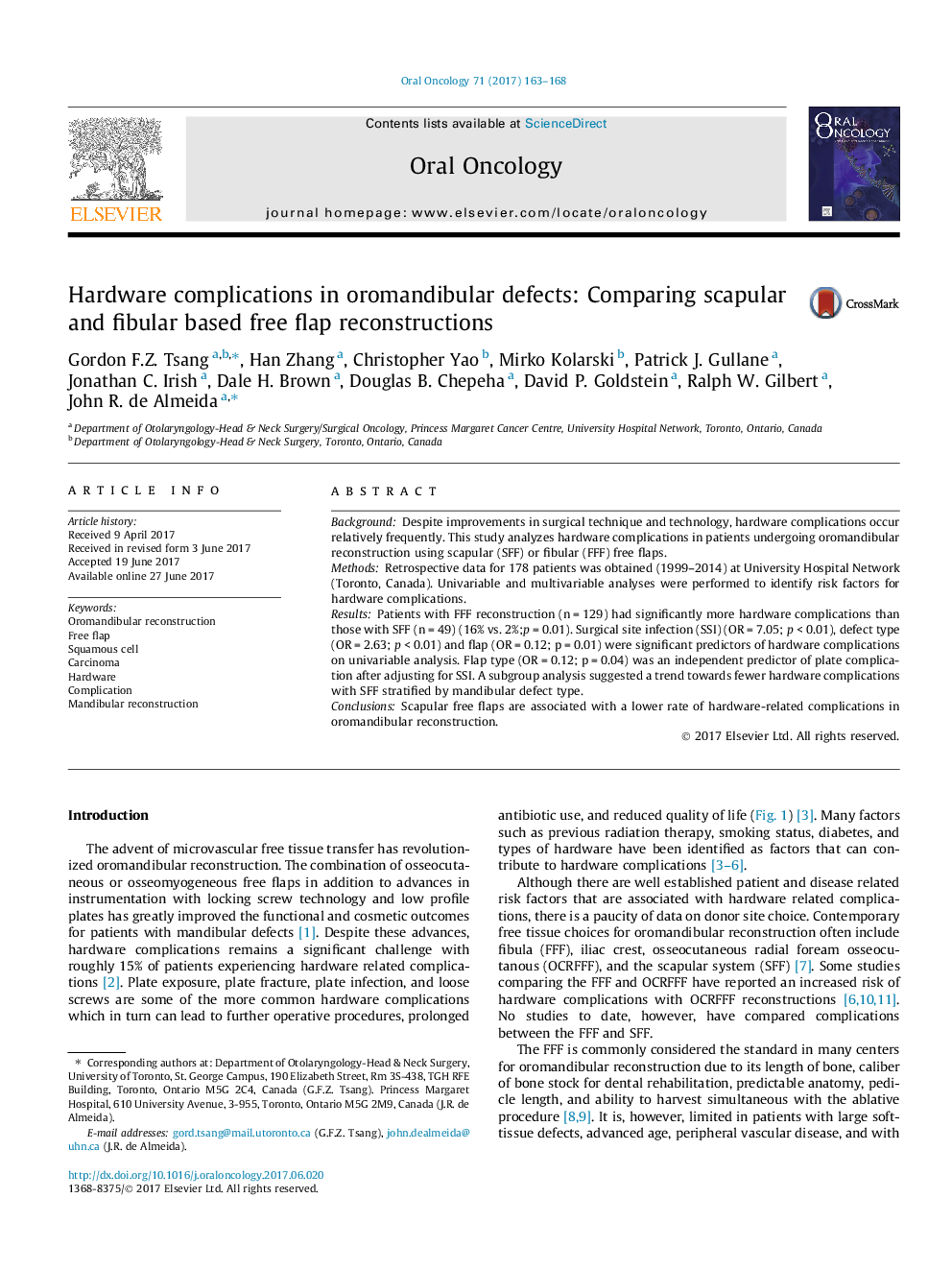| Article ID | Journal | Published Year | Pages | File Type |
|---|---|---|---|---|
| 5642654 | Oral Oncology | 2017 | 6 Pages |
â¢Hardware complications are common in free flap reconstruction of the mandible.â¢Retrospective review comparing fibula and scapula free flaps in reconstruction.â¢Defect and flap type and surgical site infection were predictors of complications.â¢Scapular free flaps were independently associated with a lower complication rates.
BackgroundDespite improvements in surgical technique and technology, hardware complications occur relatively frequently. This study analyzes hardware complications in patients undergoing oromandibular reconstruction using scapular (SFF) or fibular (FFF) free flaps.MethodsRetrospective data for 178 patients was obtained (1999-2014) at University Hospital Network (Toronto, Canada). Univariable and multivariable analyses were performed to identify risk factors for hardware complications.ResultsPatients with FFF reconstruction (n = 129) had significantly more hardware complications than those with SFF (n = 49) (16% vs. 2%;p = 0.01). Surgical site infection (SSI) (OR = 7.05; p < 0.01), defect type (OR = 2.63; p < 0.01) and flap (OR = 0.12; p = 0.01) were significant predictors of hardware complications on univariable analysis. Flap type (OR = 0.12; p = 0.04) was an independent predictor of plate complication after adjusting for SSI. A subgroup analysis suggested a trend towards fewer hardware complications with SFF stratified by mandibular defect type.ConclusionsScapular free flaps are associated with a lower rate of hardware-related complications in oromandibular reconstruction.
